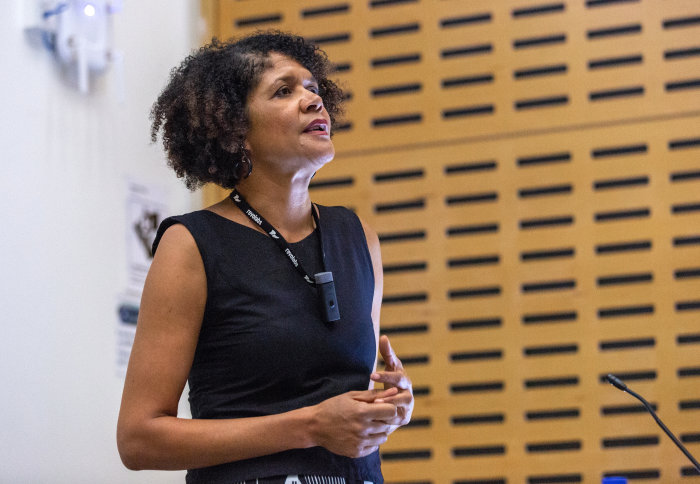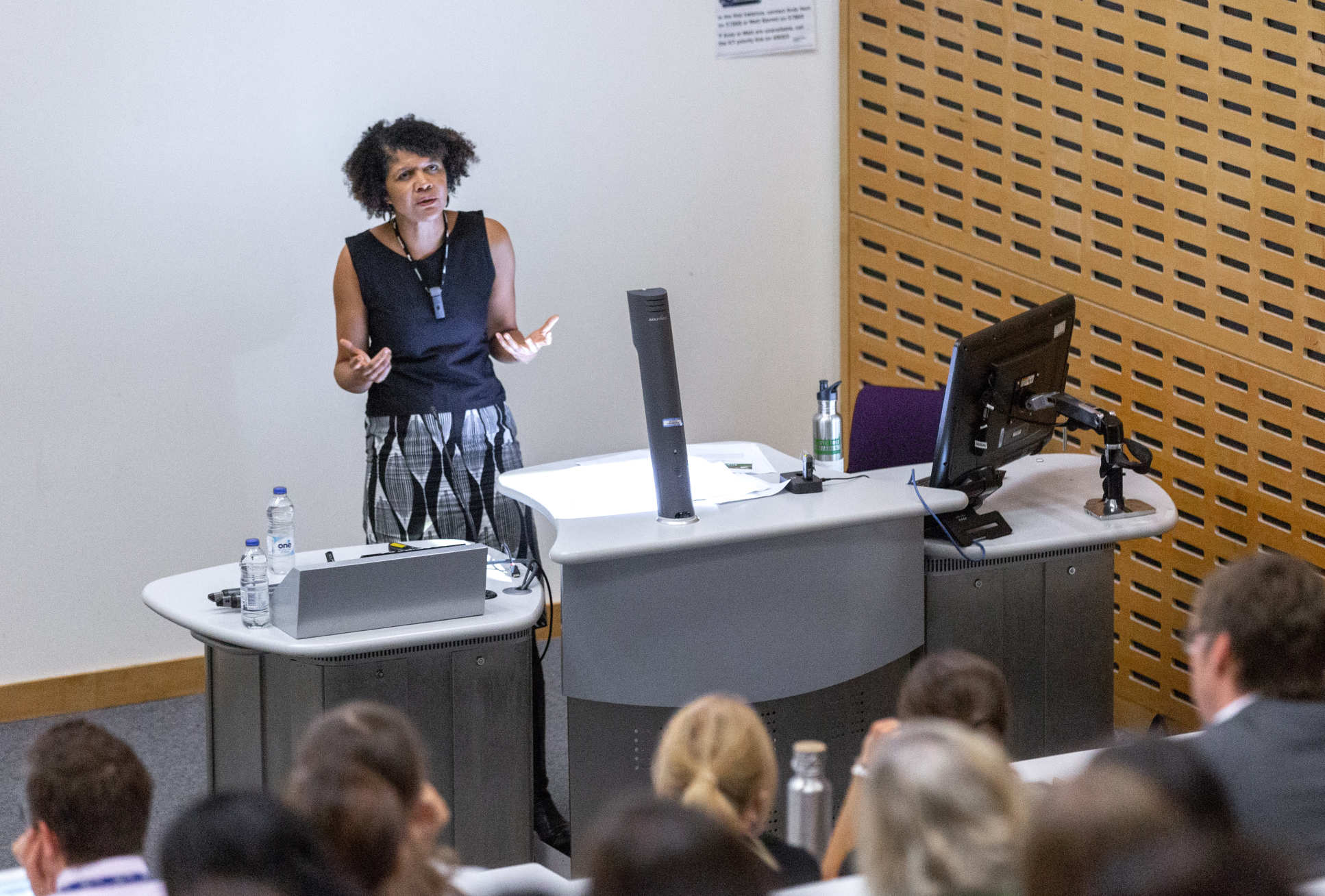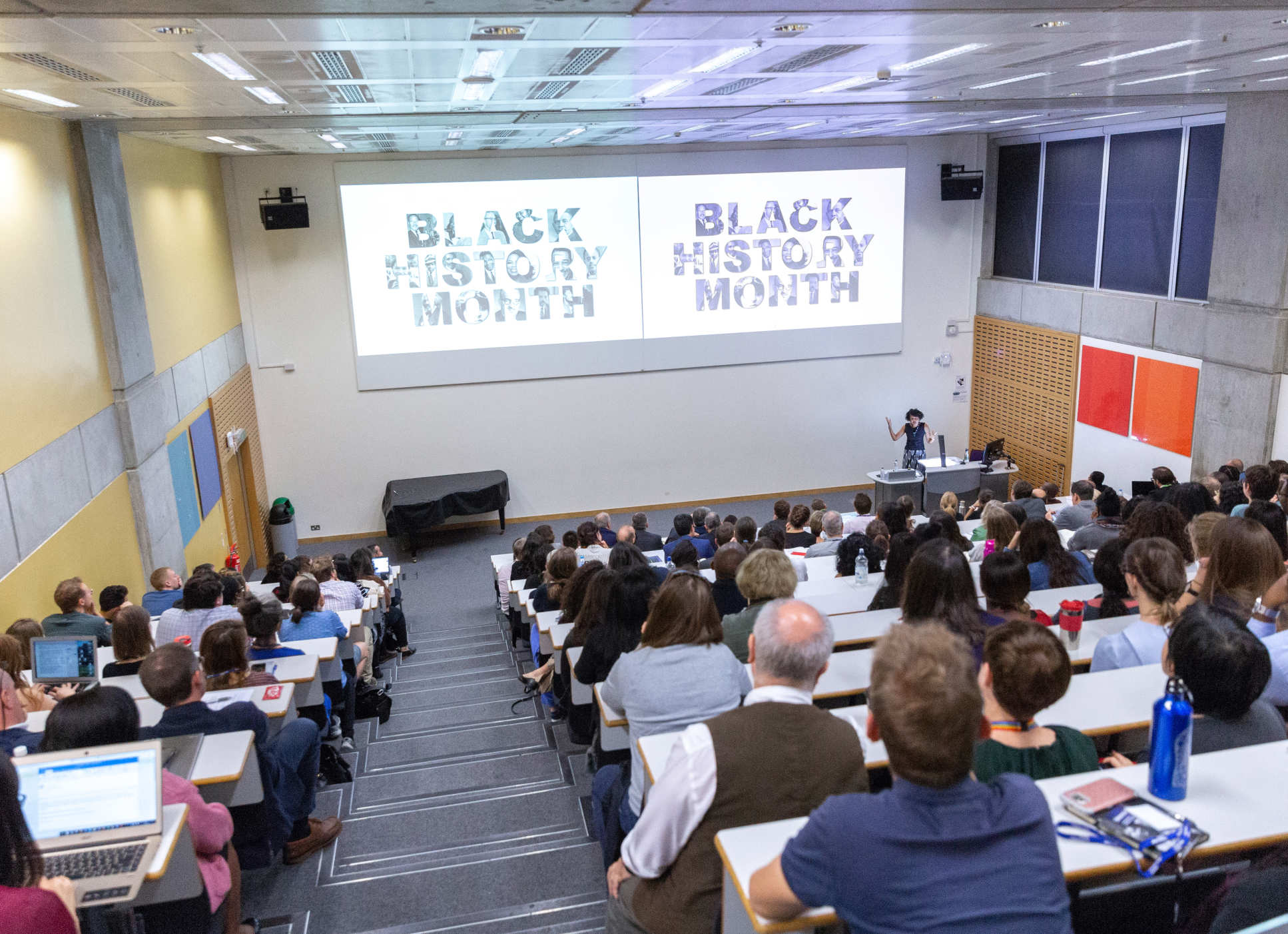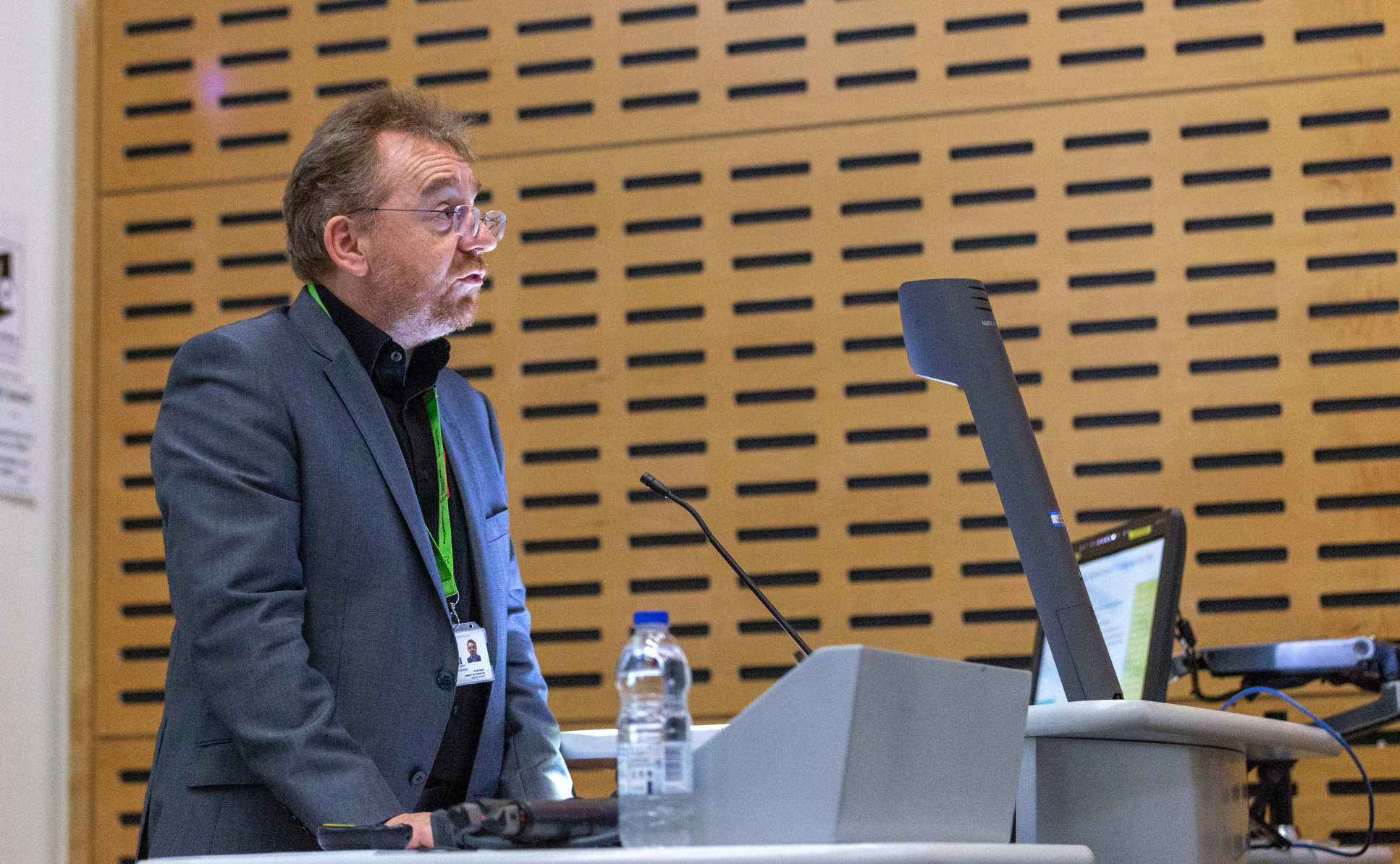MP Chi Onwurah: “As an engineer, I was often the only Black person in the room”

MP Chi Onwurah delivered her lecture on Diversity in STEM this week
MP Chi Onwurah, Labour’s Shadow Minister for Industrial Strategy, Science and Innovation delivered a lecture on ‘The Importance of Diversity in STEM.’
Chi graduated from Imperial in 1987 with a degree in Electrical Engineering. After completing her MBA at The University of Manchester in 2002, she worked internationally as an engineer and consultant, and was appointed as the Head of Telecoms Technology at OFCOM in 2004. Chi was elected Labour MP for Newcastle Central in 2010, and currently serves as the Chair of the All-Party Parliamentary Group on Diversity and Inclusion in STEM.
Over 300 guests consisting of staff and students attended the talk and were given an opportunity to ask Chi questions. We share some highlights from her talk.

“As an engineer, I was often the only Black person in the room"
During her lecture Chi described some of her experiences as a Black female engineer, and discussed being aware of the different strands of her identity. Reflecting on her career in telecoms, Chi explained:
"Everyone would remember me, but I wouldn’t remember them." Chi Onwurah MP
“I attended many conferences and would present to around 2,000 people in a room - and I would be the only Black woman. Everyone would remember me, but I wouldn’t remember them. I was memorable, which has some advantages, but ultimately it was a very isolating and exclusive environment.
“As an engineer, I was often the only Black person in the room, the only woman, the only working-class person, the only Northerner, the only socialist and the only Newcastle United fan! It wasn’t the latter that made me feel like an outsider."
Challenging assumptions

"I faced people’s stereotypes, rather than my actual experiences." Chi Onwurah MP
Chi also discussed assumptions made about her as both an engineer and politician. She said: “There were many assumptions about Black people, Nigerians, women and Geordies. I faced people’s stereotypes, rather than my actual experiences. These were assumptions that people would make explicit through questions such as ‘was I really a qualified engineer?’ and later when I became an MP ‘will you only represent Black people in your constituency?’”
Chi reflected on her experiences as an undergraduate at Imperial, including when racist jokes appeared in a student publication. She said: “I understand from meeting President Alice Gast today and hearing about the launch of the Equality, Diversity and Inclusion Strategy that Imperial has changed hugely since I left,” said Chi. “However, it is still important to recognise that these experiences matter as it informs the experience of engineers who are my age, or even younger, in terms of their training. It is one of the reasons why there are fewer female engineers.”
The need for representation

As she closed her lecture, Chi spoke about the urgent need for diversity and expressed her views on tech company Apple.
"Until we have proper representation in parliament, tech and engineering, we can’t say we have an equal society." Chi Onwurah MP
“They designed the Health app to ensure it extracted data that would help people’s health such as exercise, diet, sleep, temperature and pulse - all the indicators of wellness,” explained Chi. “And it did – if you were a man! They forgot about periods. And the reason they forgot about periods is because nobody in the design team had them. This is a visible example of exclusion, but my point is that this is happening all the time in other areas.”
She added: “We will never know the fantastic technology we could have. If technology was designed by representatives of humanity, then it would be more humane. Until we have proper representation in parliament, tech and engineering, we can’t say we have an equal society.
During her lecture, Chi referenced statistics which revealed that Black engineering graduates had the lowest proportion in full time work (46 per cent) and the field of Engineering has the lowest representation of women in Europe (10 per cent).
Chi took this opportunity to voice the Labour party’s Proposals for a National Education Service and diversity charter challenges to ensure diversity is embedded in everyday practice. She told the audience that science and innovation would be at the heart of Labour’s Industrial Strategy.
Celebrating Black achievements

Chi also emphasised the importance of Black History Month and Ada Lovelace Day.
“This October, with Black History Month and Ada Lovelace Day – we have an opportunity to hear the stories of those who have invented our world in all its glory and diversity. It is also an opportunity to consider what we want the future and our sector to look like to make UK science and engineering truly diverse and inclusive.”
Imperial is marking Black History Month with a College-wide campaign that has taken over digital screens across all campuses. It is showcasing the profiles of Black staff, students and alumni from Imperial, and recognise the inspiring work of pioneering Black scientists past and present.
Diversity matters at Imperial

During Chi’s talk Professor Stephen Curry, Assistant Provost (Equality, Diversity and Inclusion), launched the College’s Equality, Diversity and Inclusion Strategy, as well as the Race Equality Charter survey for staff, which is aimed at improving the representation and success of Black, Asian and Minority Ethnic (BAME) staff and students at Imperial.
All staff are invited to complete a 10-minute confidential survey that will help to make Imperial a better place to work and study for everyone. It will close on Saturday 3 November, and students will be invited to participate in a separate survey in November.
Article text (excluding photos or graphics) © Imperial College London.
Photos and graphics subject to third party copyright used with permission or © Imperial College London.
Reporter
Martha Salhotra
Communications Division